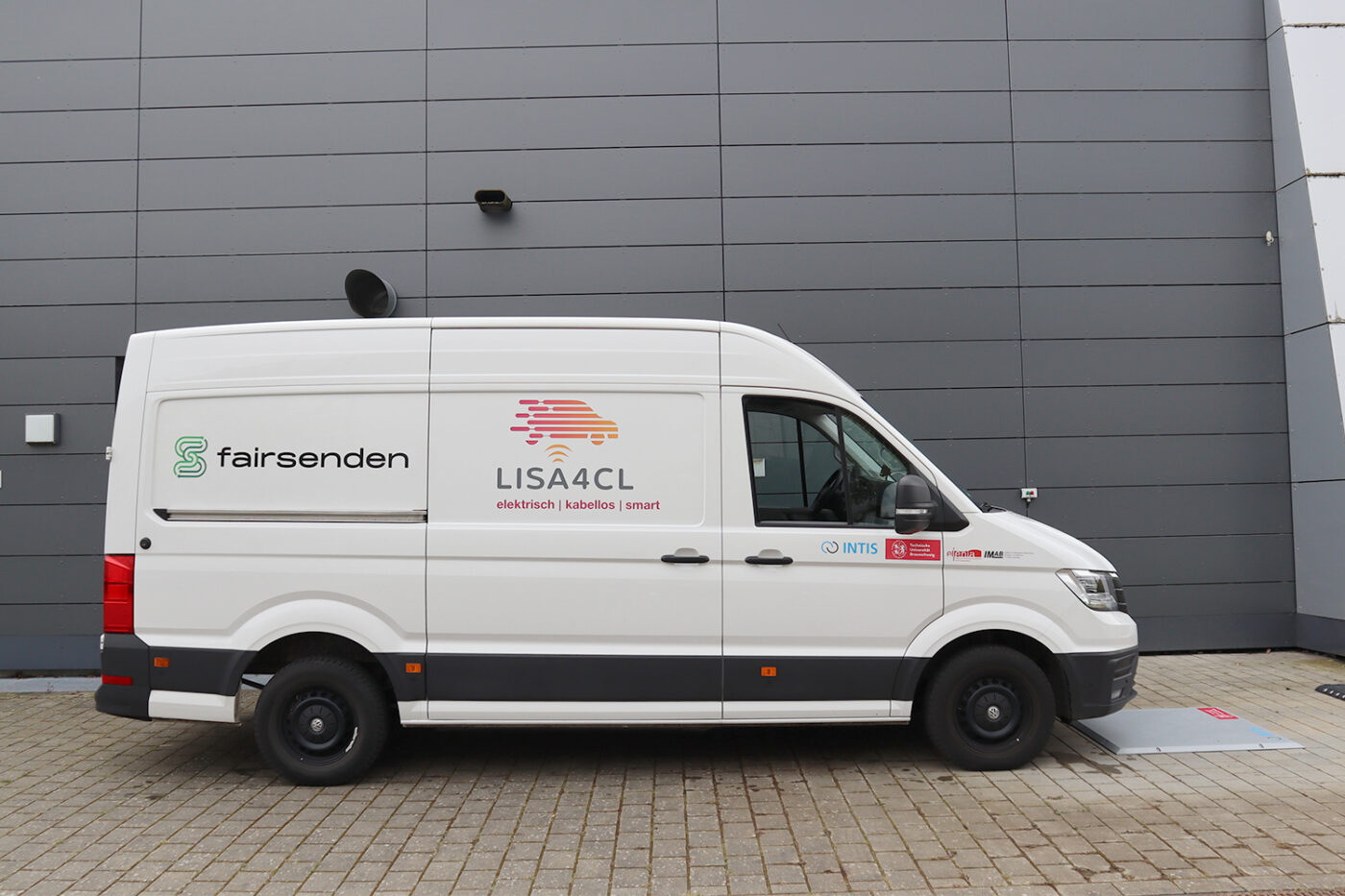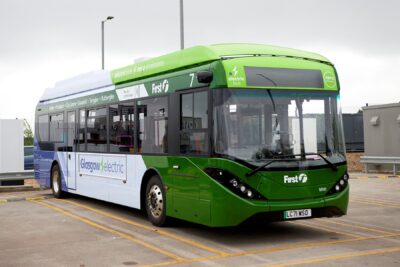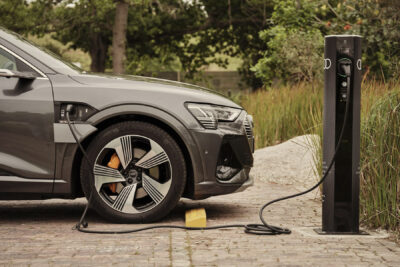TU Braunschweig to develop wireless charging for EVs
Inductive charging systems consist of a road-side and a vehicle-side component. With the help of magnetic coils, energy is transferred contactless from the road surface to the parked vehicle via an air gap. In the vehicle, the electrical energy is fed into the high-voltage battery via power electronic circuits. This means that the charging process takes place without a cable connection between the vehicle and the charging system.
The components required for such an inductive charging system were tested in the research project at the Institute for Electrical Machines, Drives and Trains (IMAB) at the TU Braunschweig and at the elenia Institute for High Voltage Technology and Energy Systems. The charging technology was set up at the site of project partner INTIS in Lathen, Emsland, and a VW e-Crafter was converted as a test vehicle. Extensive tests on system function and safety were then carried out together with the TU Braunschweig.
The inductive field test phase then began in Braunschweig, in which the previously developed charging system is tested in real everyday use in a practice-orientated manner. “The practical field test is a very important part of the project, as it allows us to test our technology in practice for its long-term function and benefits for the user,” says Professor Markus Henke, Director of the IMAB. The inductive charging system will be tested in practice in the day-to-day operation of the TU Braunschweig’s building management system, even beyond the duration of the project. Relevant questions here are the possible simplifications in the operating process through the contactless charging technology or the effects on the range through so-called opportunity charging.
The researchers paid particular attention to the high efficiency of the technology. “To achieve a high overall efficiency, both the individual components and the entire efficiency chain have to be optimised,” says Tim-Hendrik Dietrich, research assistant at the Institute for Electrical Machines, Drives and Trains at TU Braunschweig.
Furthermore, communication between the electric vehicle and the charging station is crucial when carrying out charging processes. The realisation of the hardware and software for charging communication was therefore another focal point during development: “The implementation of requirements from technical standards for charging The implementation of the requirements of the technical standards now available for charging communication in inductive charging is a central building block for the implementation of the technology,” says Gian-Luca Di Modica, research assistant at the elenia Institute at TU Braunschweig.
In order for inductive charging to become established, interoperability is particularly important. Only then will vehicles be able to charge at all inductive charging stations, regardless of the manufacturer. To this end, standards and norms for inductive charging are being developed in which requirements for contactless energy transmission and communication between the vehicle and the charging station on the infrastructure side are defined. The TU Braunschweig project has therefore set itself the goal of supporting the standardisation of the 22 kW power class. “We will use our findings from the project to formulate recommendations and present them to international standardisation committees,” says INTIS Managing Director Ralf Effenberger.
The TU Braunschweig is by no means the only institution researching wireless charging. One noteworthy example is a stationary solution from Mahle, which aims to score points with an automatic positioning process for the car above the charging mat. On the other hand, charging while driving is being driven forward by companies such as ElectReon, which is involved in projects in Coventry in the UK and in the US car city of Detroit.






0 Comments